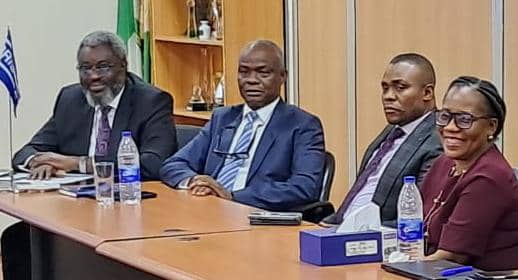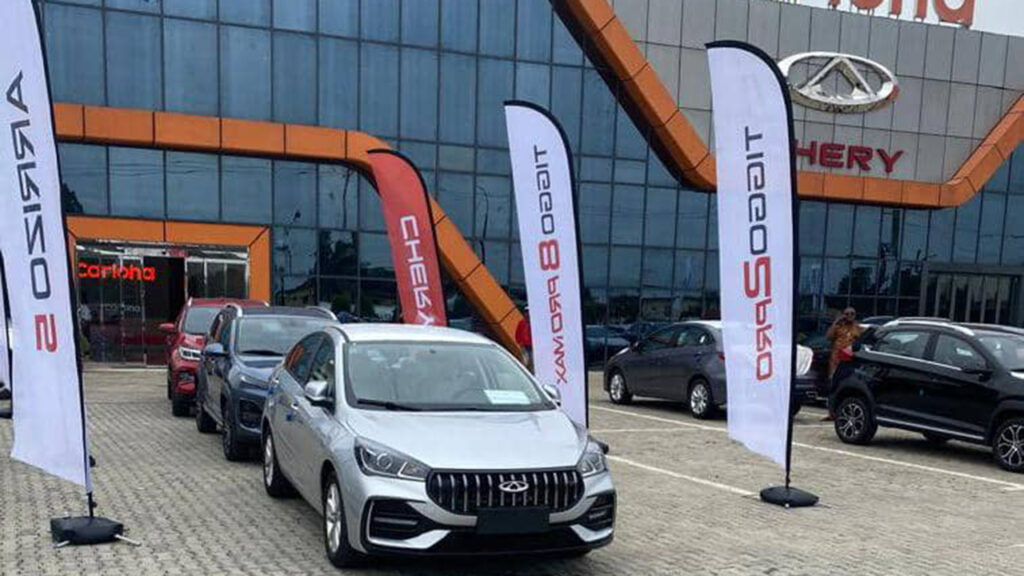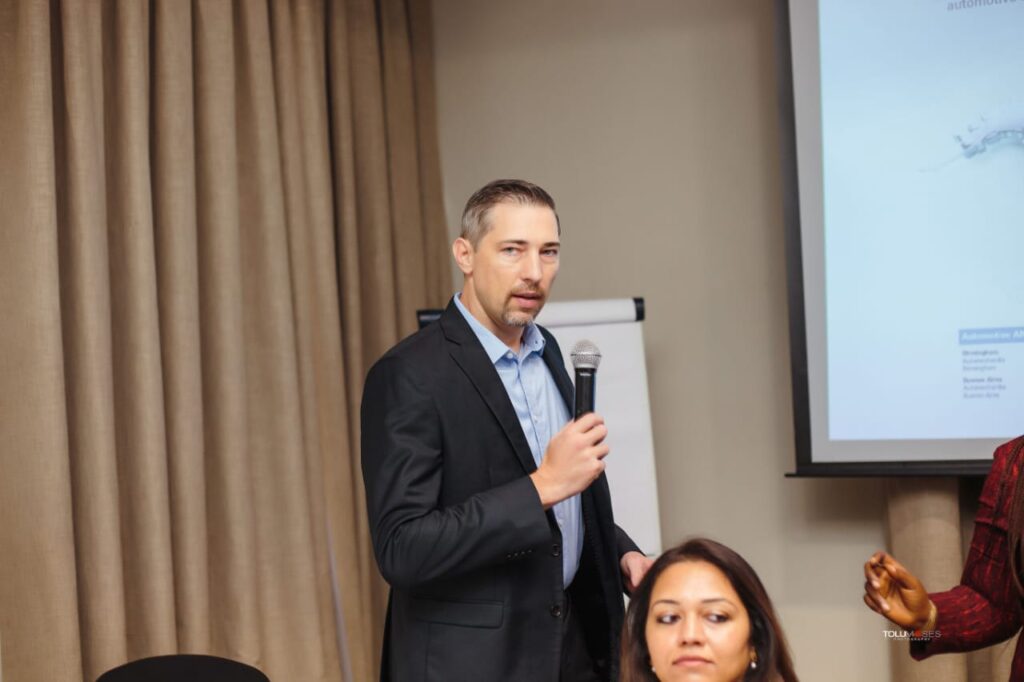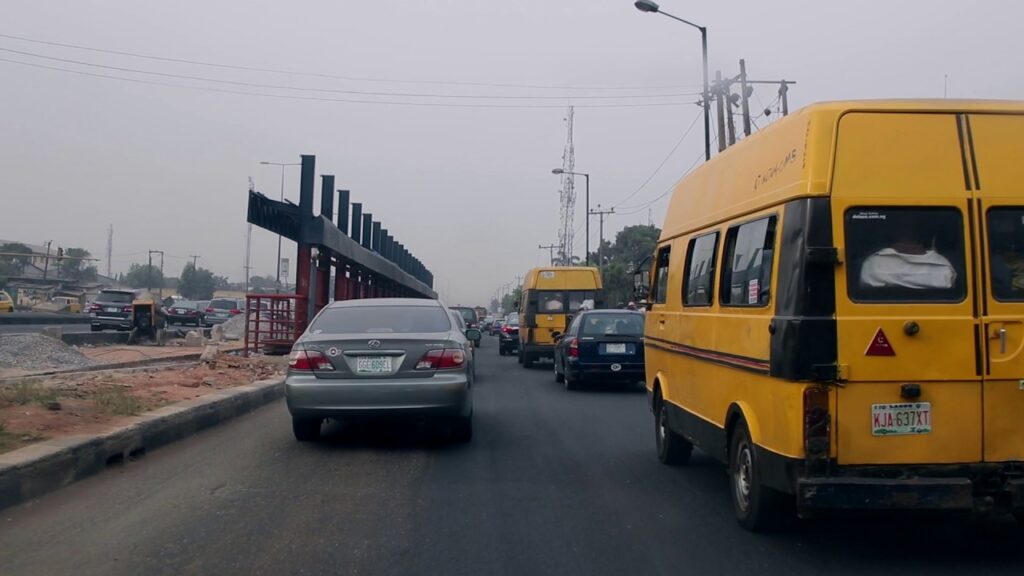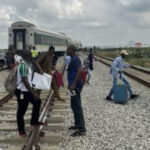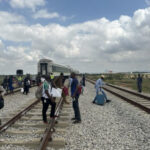
PHOTO: SUNDAY AKINLOLU
Perennial insecurity and dastardly attacks on rail tracks have robbed the transport sector of passenger traffic with attendant effect on earnings.
The sector that has been recording a dip in traffic since last year may be in for more shocks, experts have said.
Last month, passengers waiting to board from the Igueben station in Igueben Local Government Area of Edo State, to Warri in Delta State, were kidnapped by suspected herdsmen.
The Itakpe-Warri train attack occurred barely 10 months after the Abuja-Kaduna train was ambushed, with eight passengers killed and over 60 persons abducted.
Penultimate Friday, the Abuja-Kaduna train also derailed in the Kubwa area of Abuja causing the suspension of operations on the track, which just resumed operations days before.
According to the National Bureau of Statistics (NBS), the rail transportation passengers intake decreased by 25.29 per cent in the second quarter of 2022 and further dipped by 29.91 in quarter three. The decrease was attributed to the attack on rail facilities, which scared passengers.
The reports noted that passengers intake was 422,393 compared to 565,385 in the same period of last year.
According to the bureau, revenue generated from passengers was N598.73 million, a 40.13 per cent decline from N1.08 billion in the same period in 2021. In terms of revenue generation, N 2.07 billion was earned during the period, higher by 124.11 per cent to N892.46 million in the first quarter of 2021.
The Federal Government said it has beefed up security on the Abuja-Kaduna rail service but experts said more needed to be done in terms of employing technology in security architecture nationwide.
President General of the Nigeria Union of Railway Workers (NUR), Innocent Ajiji, had recently said though the sector saw pockets of improvements; government was yet to consider the right policies for profitability in the last 59 years.
Ajiji regretted that the Nigerian Railway Corporation’s (NRC) last declared profit was in 1964, but the woes might continue with over four kilometres of rail tracks now stolen by rail thieves.
Ajiji said the incessant attacks and accidents on the railway lines have pulled the union backward and a very strong blow on the union. Part of it, he said, caused their revenue to drop drastically.
“Because, when the Abuja-Kaduna train service was attacked in April last year, it made passenger patronage both in Lagos and Warri-Itakpe line to drop drastically. That further brought down our revenue generation. Before the attack, we were generating close to N500 million monthly but now, we can’t even generate up to N50 million. This is our fear and situation.”
Speaking with The Guardian, Former Dean of the School of Transport and Logistics, Lagos State University (LASU), Prof. Samuel Odewumi, said there was no alternative than ensure safety and security.
“In transportation of any mode: air, water, rail, road or rope, the first consideration is safety and security. The fact is that the air and international waters are internationally regulated. So, there is little or no room for cutting corners on the mode,” he said.
Odewumi said the present assault on the rail that was just getting attention of Nigerians is catastrophic for delivery of cheap and reliable mobility and for the debt that was incurred to build the rail and the ancillary infrastructure and equipment.
He advocated for each train to have embedded a well-equipped commando force that can withstand a group of bandits for 30 minutes to an hour, until a backup team arrives. There should also be a surveillance arrangement for the stations.
In addition to adopting technology, he said there should be a human component of the security apparatus. “Let the communities along the rail line be mobilised to be part of the security architecture,” he said.
Chief Executive Officer, West Atlantic Cold-Chain and Commodities Limited, Henrii Nwanguma, said the focus should be cargo for rail, until security improves.
He said although more security was bound to increase the cost of operations and ultimately impact patronage, doing nothing equally has a socio-economic cost to the nation.
“I would suggest that railways first focus on cargo haulage, especially on long distances. Kidnappers or robbers will find this less attractive. Nobody kidnaps cargo. They steal it. The difficulty level will simply mean it will be unattractive. Passenger services may then be introduced later on the premise of successful cargo services,” he said.


